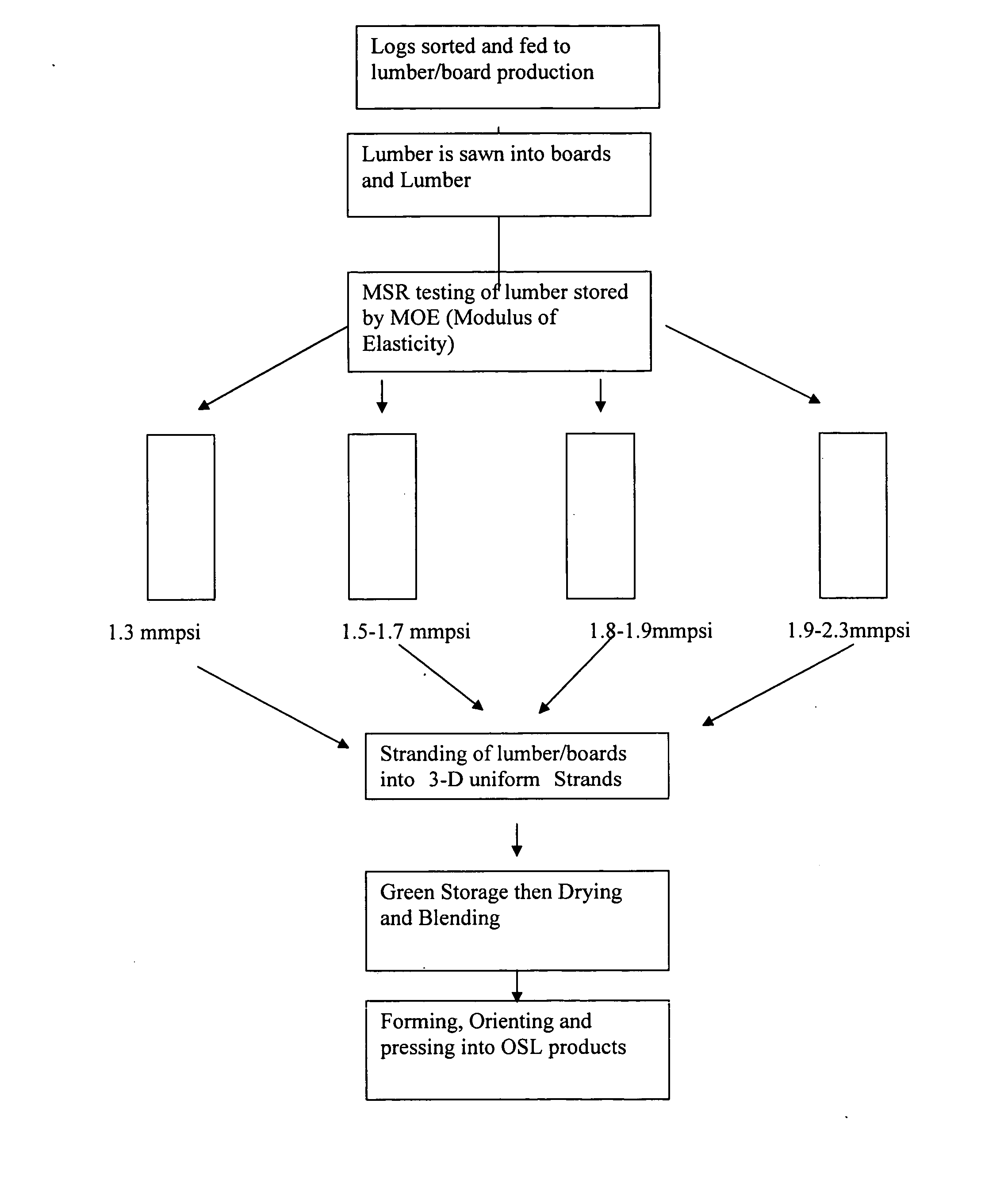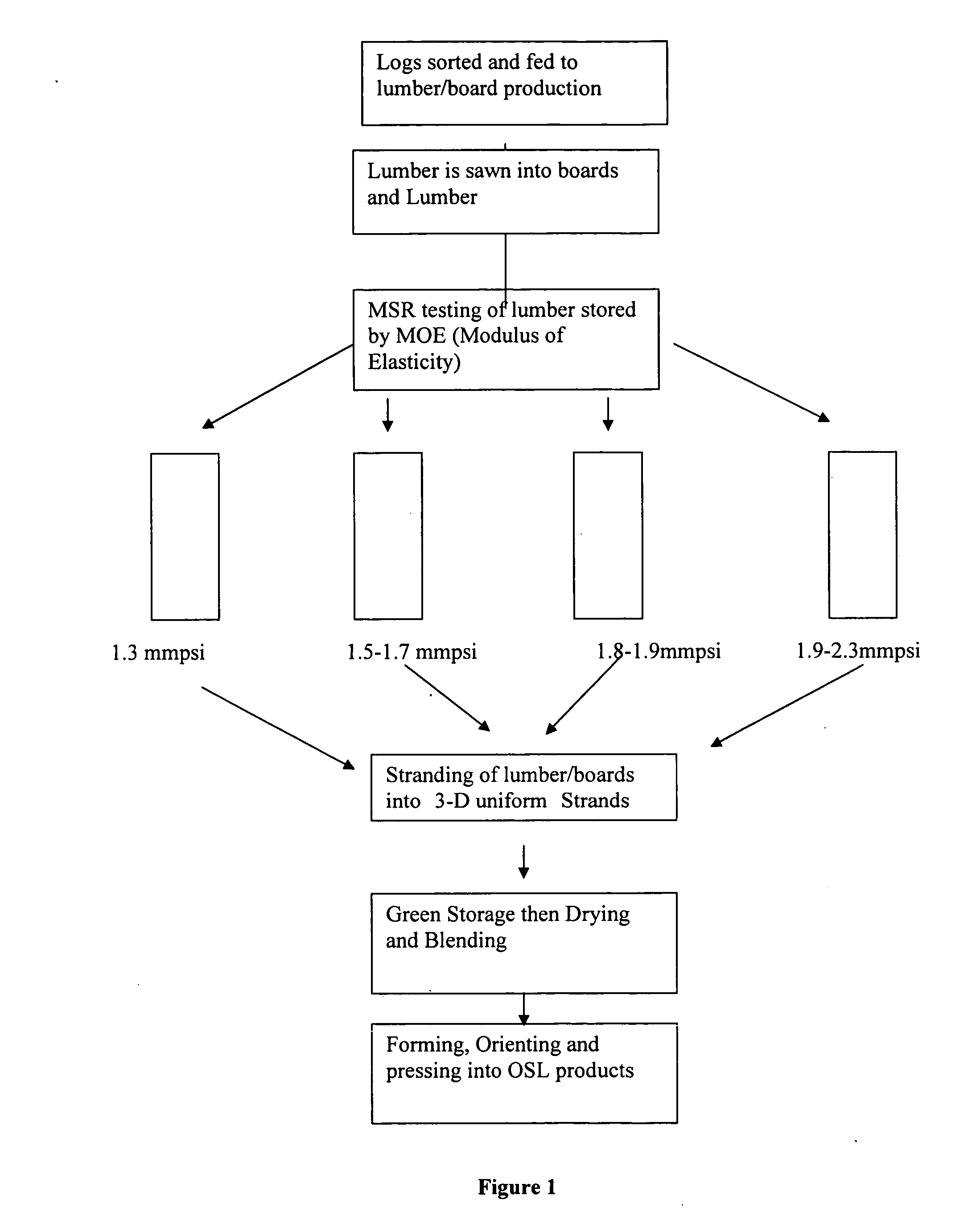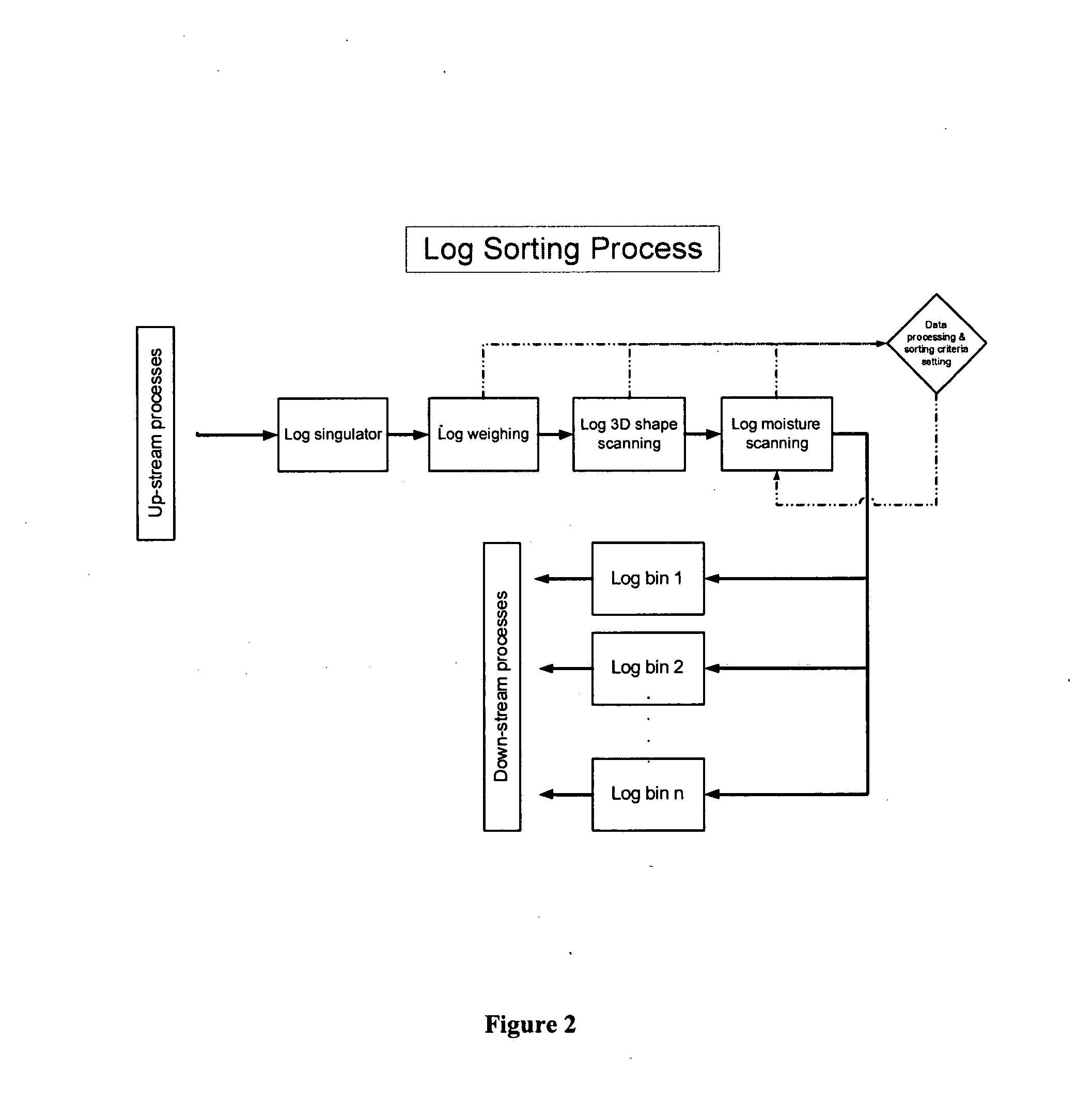Methods for making improved strand wood products and products made thereby
a technology of strand wood and products, applied in the field of overall, can solve the problems of ineffective total use of wood resources, inability to achieve inability to produce products with such targeted moe values, etc., and achieve the effect of reducing variability in the finished produ
- Summary
- Abstract
- Description
- Claims
- Application Information
AI Technical Summary
Benefits of technology
Problems solved by technology
Method used
Image
Examples
example 1
[0074] Short leaf (SL) pine solid logs were sawn into 2″×4″ lumbers with a target length of 8 feet long. Twenty pieces of lumber were tested using a nondestructive evaluation technique known as transverse vibration to determine the dynamic modulus of elasticity. The procedure utilizes an oscilloscope to measure the frequency of a waveform generated by inducing a fundamental mode of transverse vibration in the simply supported beam configuration. The obtained frequency is used to calculate the dynamic modulus of elasticity. The means [standard deviation] of obtained dynamic MOE for Short Leaf pine is 1315 [319] (kpsi) for the non-destructive tested (NDT) sawn lumbers. The special MOE(para.) of tested panels is determined by the following formula: S_MOE(para.)=MOE(para.) / (OSB Density). The S_MOE(para.) for example 1 is 37.6 (kpsi) / (pcf).
example 2
[0075] Loblolly (LP) pine solid logswere sawn into 2″×4″ lumbers. By using the same procedures as example 1, the dynamic MOE for LP pine is 948[173] (kpsi). The S_MOE(para.) for example 2 is 28.7 (kpsi) / (pcf).
example 3
[0076] The same types of raw log materials were stranded using a commercially available ring strander into the following target strand dimension: 7.125″ long×0.03″ thick. Then, the furnishes were dried separately in third party laboratory to a target moisture content of 3-5% for core layer and 7-9% for face layer. The furnishes were pre-blended with each other in a ratio of SL to LP of 50 to 50 by wt %. 1.5% powder phenolic resin, 4% of MDI was sprayed in the cylindrical blender with face layer furnishes. 3.5% of MDI resin was sprayed in the cylindrical blender with core layer furnishes. 2% commercially available emulsion wax was sprayed for both face and core layer furnishes. The percentage of face layer to core layer furnishes by weight was 60 to 40 for all OSB panels with core layer furnishes aligned perpendicular to both the top and bottom surface layers of OSB panels. Strand mats were formed with a target density of 45 (pcf). Two oriented strand boards with a dimension of 23 / 32...
PUM
 Login to View More
Login to View More Abstract
Description
Claims
Application Information
 Login to View More
Login to View More - R&D
- Intellectual Property
- Life Sciences
- Materials
- Tech Scout
- Unparalleled Data Quality
- Higher Quality Content
- 60% Fewer Hallucinations
Browse by: Latest US Patents, China's latest patents, Technical Efficacy Thesaurus, Application Domain, Technology Topic, Popular Technical Reports.
© 2025 PatSnap. All rights reserved.Legal|Privacy policy|Modern Slavery Act Transparency Statement|Sitemap|About US| Contact US: help@patsnap.com



